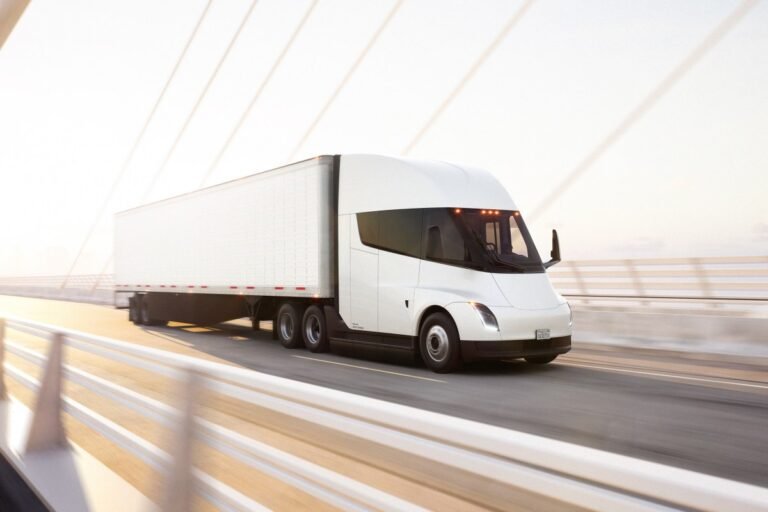Tesla, along with three other industry partners, has quietly backed an Illinois Environmental Protection Agency application that won $100 million in funding to build electric truck charging stations across the state, according to TechCrunch.
The award was the largest given by the Biden administration’s Federal Highway Administration (FHWA) last week to second round of what is known as the Charging and Fueling Infrastructure Programme. The CFI Program awarded a total of $636 million to 49 applicants in this round, after distributing more than $1 billion to approximately 100 applicants in the first round in 2024.
A different $97 million Tesla-backed project focused on building an electric trucking corridor between Northern California and southern Texas was not selected for funding in either round, as TechCrunch reported earlier this week. The company has been developing its own electric big rig for years called the Tesla Semi, but has yet to put the truck into commercial production.
Megha Lakhchaura, Illinois’ state EV officer, told TechCrunch in an interview that she decided to pursue CFI funding last year after seeing infrastructure startup TeraWatt and the New Mexico Department of Transportation earn $63 million to build heavy-duty charging along the I-10 corridor.
The Illinois EPA selected Tesla, real estate logistics company Prologis, fleet electrification company Gage Zero and trucking giant Pilot in 2024 from that pool of applicants and combined their requests into a single application for the CFI program.
Lakhchaura said Illinois is already building fast-charging stations for passenger vehicles using a combination of state and federal funding, but that “there was no money for heavy-duty or medium-duty electrification.” The agency issued a call for partners in June 2024 to help build the app, which Lakhchaura said has generated a “very good response from the market.”
Lakhchaura said the agency has requested about $126 million in CFI funding on behalf of the partners. Prologis asked for $60 million, Tesla asked for $40 million, Gage Zero asked for $16 million, and Pilot asked for $10 million. Each partner also offered to put up some of their own money to finance the construction of charging stations. Prologis offered to pay $18 million, Tesla offered to pay $19 million, Gage Zero offered $4 million, and Pilot offered $2.5 million.
Since the FHWA awarded slightly less than what was requested, Lakhchaura said there is still some work to be done to sort out how much will be allocated to each partner. The money will help the state add 345 charging ports and vehicle stalls at 14 locations, and the chargers will range from 150 kW to as much as 1 MW.
“Most of the growth has happened on the coasts, and there’s nothing really happening in the Midwest, which is not great for long-haul trucks,” Lakhchaura said. “We believe this hub could be of national importance.”
